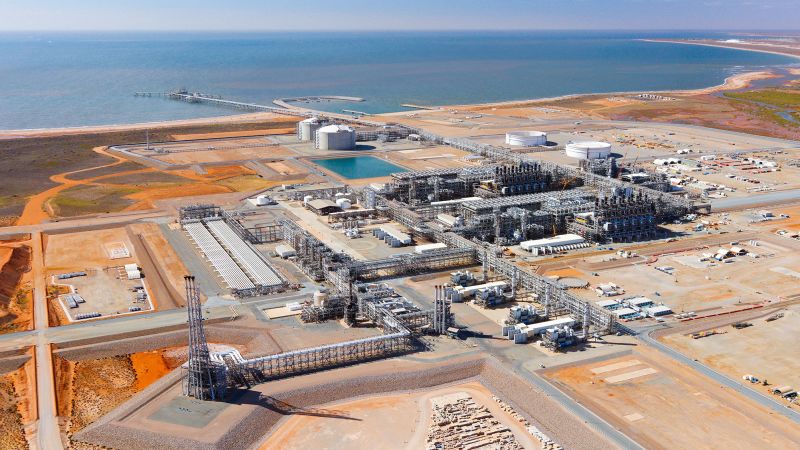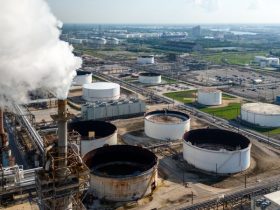Union workers have called off strikes at liquefied natural gas facilities belonging to Chevron in Australia, ending a standoff that could have affected about 7% of global LNG supply.
Both Chevron (CVX) and Offshore Alliance, which represents the Australian Workers’ Union and the Maritime Union of Australia, said Friday they had accepted new employment agreements proposed by Australia’s Fair Work Commission, the workplace relations tribunal.
The proposed deals now “contain substantial improvements in terms and conditions of employment, including increased remuneration, job security, locked-in rosters [and] career progression,” the alliance said in a statement.
“The Offshore Alliance will now work with Chevron to finalize the drafting of the three agreements,” it added.
Chevron said in a statement that it had “accepted the recommendation to resolve all outstanding issues.”
“The unions have advised Chevron Australia and the Fair Work Commission that industrial action has been suspended,” it added.
Workers at Chevron’s Gorgon and Wheatstone facilities began walking off the job two weeks ago over pay and other conditions.
The sites, located by the coast of Western Australia, are hugely significant. If strikes had stopped production at the facilities for a month, about 7% of global supply would have been lost, according to Daniel Toleman, a principal research analyst of global LNG at energy consultancy Wood Mackenzie.
“There has not been a material impact on global LNG supply. Prices are likely to soften, and volatility will be removed from the market,” Toleman told CNN on Friday.
In Europe, the threat of strikes had sent natural gas prices higher several times over the past month.
The region has become more dependent on global LNG supplies since deliveries of pipeline gas from Russia slumped following its invasion of Ukraine in February 2022.
Europe has been stockpiling ahead of the winter heating season, managing to hit a storage target last month ahead of schedule.
But despite the nearly full tanks, investors had been unnerved as talks in Australia appeared to break down in recent weeks.
Workers notified Chevron of their plans to strike in late August, about a week after the energy giant presented an offer that failed to impress union members.
In a statement at the time, the Offshore Alliance said the proposed compensation was “lower than some Tier 2 oil and gas operators in Australian waters.”
A market leader like Chevron should align its pay rates with industry peers, such as Shell (SHEL), it had argued.
The tensions led to weeks of acrimonious debate, prompting Australia’s arbitrator to step in this week at the request of Chevron.
On Thursday, the Fair Work Commission outlined recommendations including increased overtime pay in some cases, travel allowance for training and tighter regulation of work hours.
Both parties have also outlined plans to set up a workplace committee that will meet quarterly to discuss salary matters, according to the commission.
Read the full article here











Leave a Reply